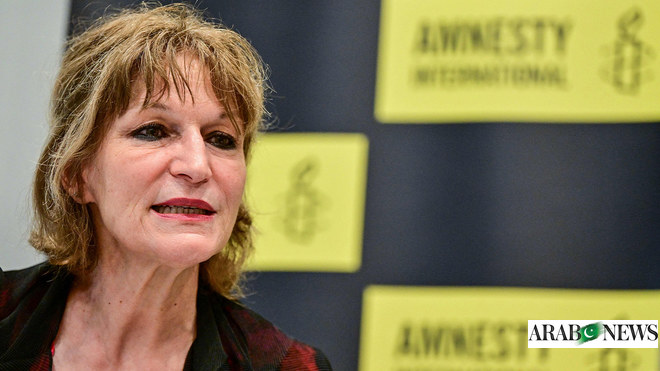Pakistan’s leading rights groups express ‘grave concerns’ as defamation law passed in Punjab
ISLAMABAD: Pakistan’s leading human rights organization this week criticized a defamation bill passed by the Punjab provincial assembly that gives special courts the power to impose hefty fines on those found guilty of spreading fake news. “I am deeply concerned,” he said, adding that it would lead to a suppression of free speech. and expression in that country.
The bill gives the government powers to set up special tribunals to try those involved in creating, publishing or broadcasting “fake news”. The court will decide the case within six months and could impose a fine of up to 3 million rupees ($10,770). However, if a case is to be heard against an individual in a constitutional position, it will be heard by the High Court.
The bill also specifies that the government will provide legal assistance in defamation cases against women and transgender individuals through legal teams. The bill was tabled in parliament by Punjab Finance Minister Mujtaba Shujaur Rehman on Monday, ignoring calls from the Pakistan Federal Union of Journalists (PFUJ) and other news organizations to postpone the vote.
After the House of Commons passed it by voice vote, commotion ensued in parliament, with opposition members tearing up copies and shouting slogans. Journalists in the press gallery staged a walkout, claiming the bill would silence dissent.
“The Human Rights Commission of Pakistan (HRCP) has expressed serious concerns over the Defamation Bill tabled in the Punjab Assembly,” the HRCP said in a statement on Monday.
HRCP points out that the bill proposes a parallel structure for adjudicating defamation claims, noting that such measures “always violate fundamental rights and other universally recognized rules governing the fair functioning of the judiciary.” He added that he had always opposed the bill on the grounds that it violates established norms.
Also, the fact that the bill empowers the government to set up defamation tribunals and appoint judges with higher allowances and benefits than those available to the existing state judiciary functioning at the district level He also increased his vigilance.
The HRCP states that the bill stipulates that defamation claims must be resolved within 180 days and provides the power to issue interim judgments of up to Rs 3 million without trial in the case of defamation claims. He said he is proposing to give it to the court.
“This will be a major blow to freedom of expression and dissent,” the rights group said. “Such orders are likely to be passed without following due process and ensuring a fair trial.”
The HRCP stressed that the bill creates a “special category” of constitutional office-holders such as the prime minister, chief justice and army chief. Defamation claims against these members will be heard by a single bench consisting of a judge of the Lahore High Court.
“This provision violates the principles of national equality and equality before the law,” he said.
Meanwhile, Punjab Information Minister Asma Bokhari last week defended the bill, saying its main objective is to stop the spread of lies and defamation.
“Anyone who pretends to be a journalist with a specific purpose will face music under this bill,” Bokhari told reporters at a press conference on Wednesday.
Bokhari said some articles published in Pakistan that spread fake news cannot be published in other countries as there are strict laws preventing such activities.
“After this law, no one will be threatened,” she said. “Freedom of expression will not be restricted and wrongdoing will not be tolerated.”
Media organisations have named Pakistan as one of the most dangerous countries for journalists, and the International Federation of Journalists (IFJ) released a country report on Pakistan on May 3, stating that more than 300 journalists and bloggers have been affected by state coercion this year.
Dozens of journalists have been arrested this year, ranging from a few hours to four weeks, and nearly 60 people have been served with legal notices or subpoenas for journalistic work or personal online opposition, the report said. It is said that there is.

